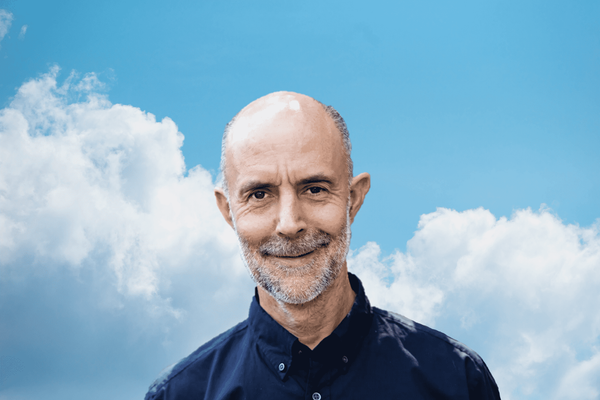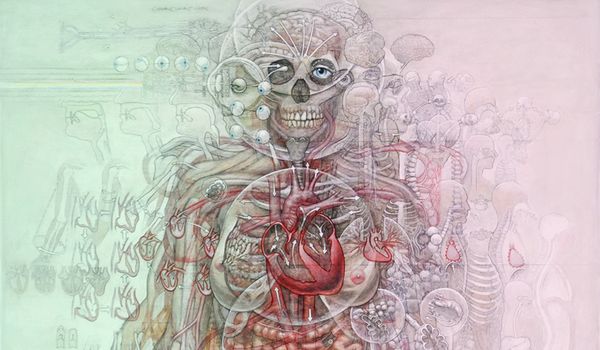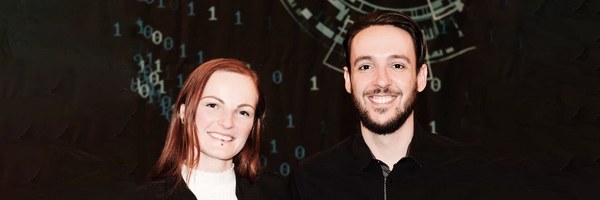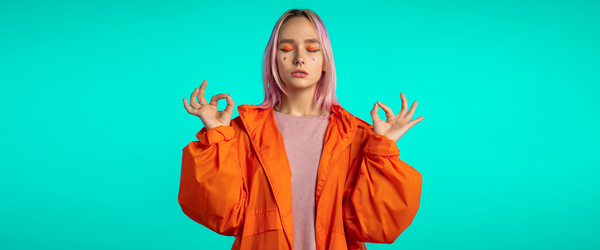Ben • • 17 min read
15 Reality-Shattering Thought Experiments That Will Unplug You From the Matrix
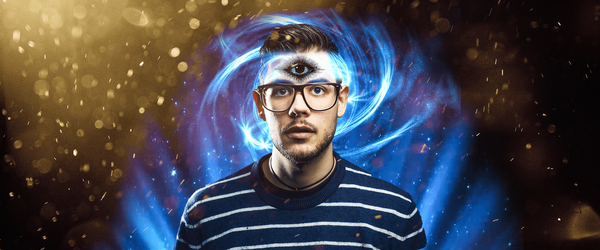
What is the matrix?
The matrix is all around you. It’s your current worldview — everything you think you know.
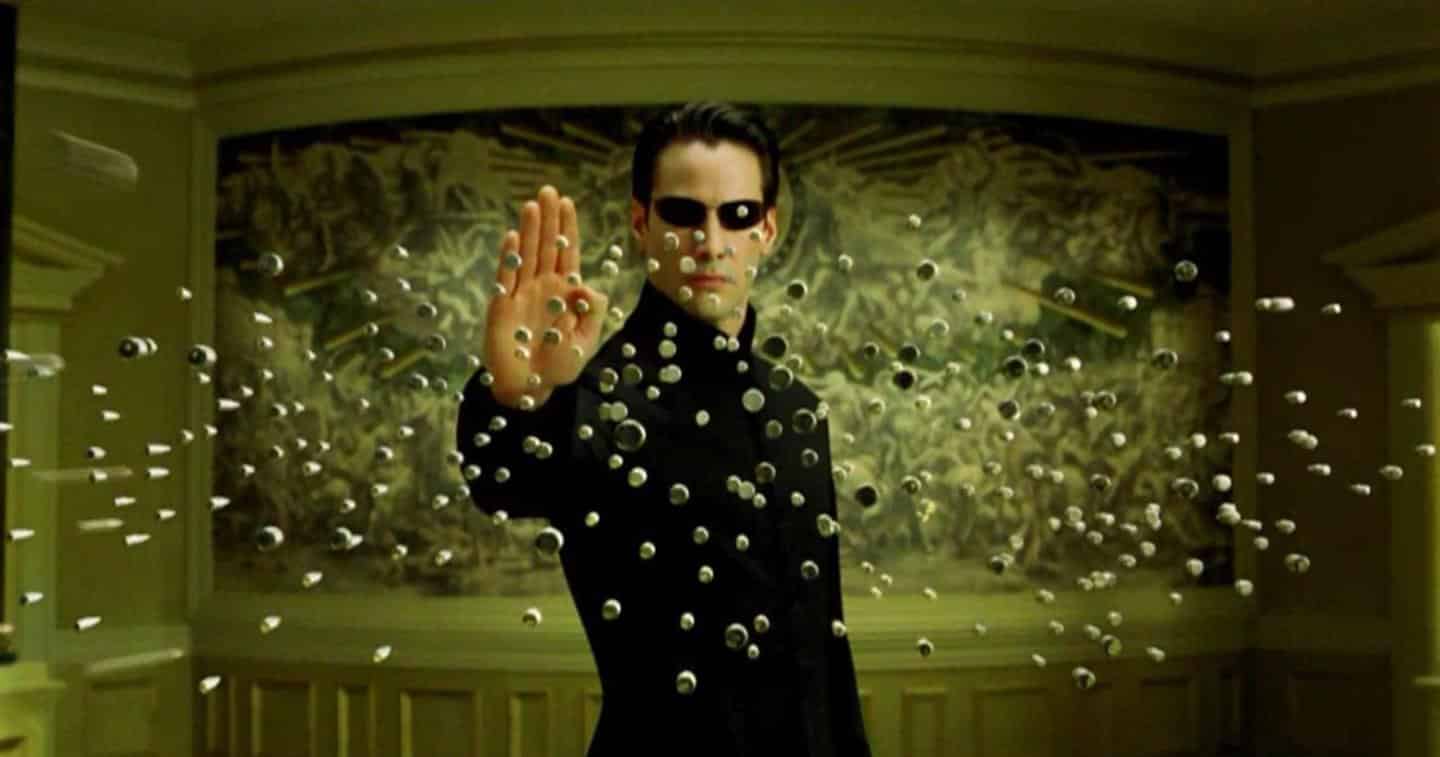
The thing is: your current worldview is incomplete and inaccurate. It contains a certain amount of delusion and illusion.
And that’s not necessarily a bad thing. We all live in the matrices of our current worldviews. We all approximate our own truth. No human fully comprehends what is going on in this universe.
However, when people become too certain in their beliefs, bad things often result. When people become overly certain, they become willing to kill and commit other atrocities to defend their beliefs.
Thus, one of our purposes at HighExistence is to consistently challenge the beliefs of the human species — to show all of you that you shouldn’t be so certain. For the world is an endlessly complex and mysterious place…
The freethinker understands this. The freethinker seeks consistently to expand and refine their worldview, knowing that there is always room for more knowledge and perspective.
One great way to expand your worldview — to unplug from the matrix of your current belief system — is to contemplate thought experiments.
That’s why I’ve assembled this collection of reality-cracking paradoxes and puzzles. My sincere hope is that this series of thought experiments will compel you to be a freethinker — to admit that there are oceans of things you do not know and to continue learning for the rest of your days. Good luck.
“I don’t believe anything, but I have many suspicions.”
— Robert Anton Wilson
15 Mind-Bending Thought Experiments
#1: We Can’t All Be Right
Many of us believe “I’m right.”
That’s ridiculous!
There’s no way we could all possibly be right. There’s no way even most of us are right. But we’re almost always convinced: “I have the right perspective”.
There are some things we can be pretty sure about. I know I’m typing on my laptop. I’m facing a window and I know it’s sunny outside. I know I like barbecue sauce.
But my interpretations of social situations often turn out wrong…
One morning at work my supervisor quickly told me they had feedback for me later in our afternoon meeting. I stressed out all day worried about what I had done wrong. It turned out they wanted to emphasize something I had done well.
I was so anxious about something completely in my imagination. I had an incorrect expectation about what the word “feedback” meant. I let my imagination run wild with this expectation, and cause me distress over something that didn’t exist.
We have a lot of ideas that we think are right. We’re certain that if we accomplish this goal, we’ll be super happy! We know this social problem is caused by that issue, and so we need to pass this legislation to solve things. We believe this happens after we die…
In all these cases, we really don’t know. We might have a good guess. And sure, we all guess right now and then.
But the world is infinitely complex. Our intelligence, wisdom, and knowledge have limitations. There are so many things we can’t know.
I bet a lot of the time, you think you’re right. Reflect on that. How much unexamined loyalty do you have in your own perspectives?
Know that everyone who disagrees with you rests with a similar level of self-assuredness.
Experiment with thinking about how ludicrous it is that almost everybody believes they’re right. We can’t all be right. But most of the time, we manage to believe we are.
#2: WWAT? What Would Aliens Think?
What would an alien think?
Question all your personal habits, all your culture’s values and activities, from that perspective.
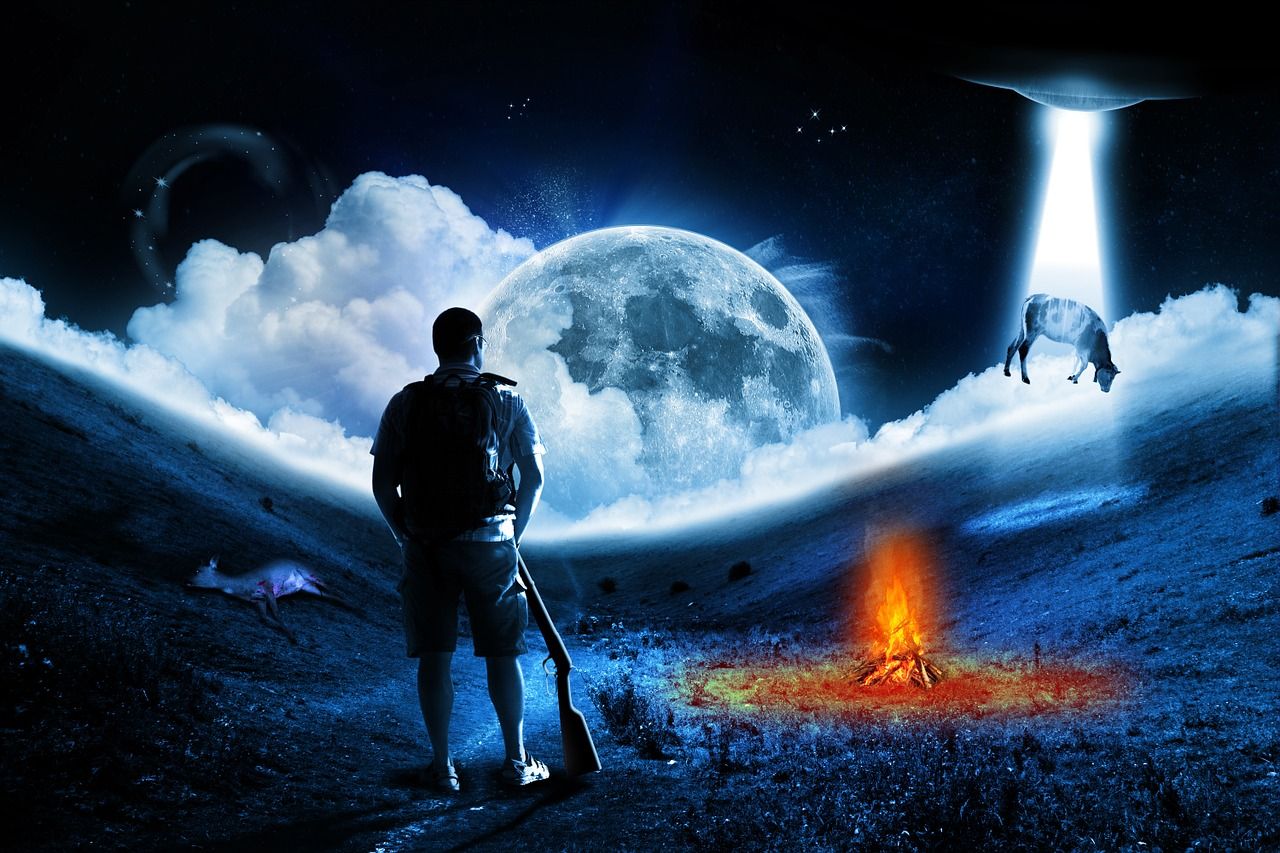
Of course, intelligent extraterrestrials would most likely have their own biased perspective just like you do. It’s not that the alien’s perspective is totally objective and perfect. The point isn’t to get a perfect view of ourselves.
The point of this thought experiment is just to see ourselves as an outsider. Are the things we do with our life worthwhile when viewed from afar? Aren’t a lot of our activities and choices kind of weird? What are we like when considered through the lens of something literally alien to us?
When I ask myself this question I find that a lot of the stuff we do is weird as fuck.
Why do we keep the toothbrush right next to the place where we shit? I mean, you put that thing in your mouth!
Why do I make a weird voice when I talk to my dog? What would an alien think if it saw a subway full of humans all staring at their phones?
If an alien with no knowledge of humans saw one of us surfing, how would it explain the activity? What would the alien think of that human’s motivation to surf? Why is the human doing that?
What would aliens think?
#3: Do We Need “A” Reality?
In his essay “Do We Need ‘A’ Reality?”, Carl Rogers begins by reflecting on how a teacher’s job is to prepare students for the “real world”.
But what is the “real world”? What do we mean when we say that, and is it an accurate model of the reality we’re actually living in?
Rogers gives an audacious answer:
“… The only reality I can possibly know is the world as I perceive and experience it at this moment. The only reality you can possibly know is the world as you perceive and experience it at this moment. And the only certainty is that those perceived realities are different. There are as many ‘real worlds’ as there are people!”
— Carl Rogers
No matter how you cut the cake, you don’t really know the “real world”. All you really know is your experience.
Rogers points out how people whose realities deviate from the accepted norm are alienated, exiled, and at times executed. Copernicus was “declared a heretic” for claiming that the Earth was not the center of the universe. “Giordano Bruno was burned at the stake in 1600 for teaching that there were many worlds in our universe”, as Carl writes.
Accepting only one reality has consequences. We shun, marginalize, and even kill our visionaries. We refuse to learn from one another. We fail to find empathy and compassion for people different from us.
So, do we need “a” reality? Is it possible for us to accept that “there are as many real worlds as there are people”? Can we learn from those who experience reality in a different way?
#4: Inner-Sense
Most people think we have 5 senses. Touch, taste, smell, hearing, and sight.
Actually, we have many more! Balance, temperature, hunger, thirst, pressure, and plenty of other sensory capacities allow us to detect physical phenomenon relevant to us.
Contemplative and meditative traditions sometimes take the view that thought, emotion, memory, and other internal activities of the mind are also senses.
These senses help us detect the more ephemeral and intangible dimensions of reality — the dynamics of a relationship, feelings like sadness and joy, what meaning a situation has for us, etc.
They paint the picture of our inner environment, as opposed to our outer environment.
Now, there are important ramifications of re-categorizing internal activity as sensation. Usually, we think of senses as detecting things that are not us.
A sensation — a sight, sound, taste, pain in the stomach — is seen as an experience we’re having. We think of them as happening to us.
But we identify with thoughts and feelings. Usually we don’t see a thought, feeling, or memory as an experience we’re having. We see it as a part of ourselves.
Would it be a good or a bad thing to de-couple our identity from thoughts, feelings, and other mental activity? We’d still have the mental activity. All the “inner senses” would still pass through.
But maybe we wouldn’t take them so personally. Maybe we’d deal with them more objectively and effectively.
Or would we get lost in apathy? Would we lose our personal passions, and the unique touches that make us ourselves?
Should we re-categorize mental activity so we see it as another “experience happening to us”, as a sensation, instead of seeing it as part of ourselves? What are the consequences of doing this?
#5: Eye See The Mind’s I
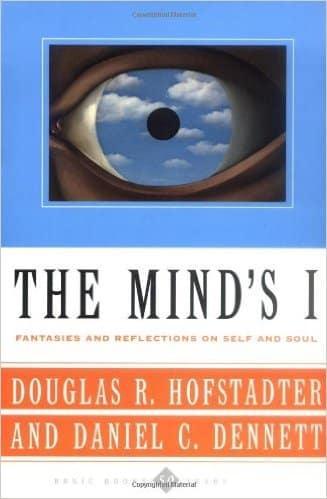
The Mind’s I: Fantasies And Reflections On Self & Soul by Douglas R. Hofstadter and Daniel C. Dennett is an incredible book full of thought experiments on mind, identity, and consciousness. Note that the cover is a close-up of an eye.
I love the concept to which they’re alluding. The idea that your “I” is also an “eye”. One’s identity functions as a perceptual instrument.
Oftentimes the way you interpret a situation has more to do with you than the situation itself. You can’t know objective reality, but you can interpret it through your subjective experience. All your views are influenced by who you are, and remnants of you can be found in all your perspectives.
When someone insults us, we try to remember that what they think about us is actually a reflection of them and not us. They haven’t been in our shoes and they don’t know what it’s like to be us.
They are interpreting us through the lens of themselves. Through the lens of all the experiences they have ever had, the lens of their personality, the lens of who they are.
We see things through the filter of our identity. How we experience ourselves is the primary filter for how we experience the world. Everything you experience somehow reflects a quality of you, because your manner of experiencing is constructed by your identity.
Can we ever see things for how they are, or is our perspective always bound by the limits of the self? Is it ever possible to transcend our identities, to see past the lens of the “mind’s eye”, and understand reality for how it is?
How often do you see things for how they are, and how often do you see things for how you are?
#6: Who Runs Your Mind, Anyway?
Do you control your own mind? Most of us believe we do. But if you did, wouldn’t it be a much easier place to live? Human minds are plagued by doubt, anxiety, depression, frustration, intolerance, craving, and plenty of other unpleasant experiences.
If you were in total control of your mind, wouldn’t it be best to choose not to feel anything bad? How often would you choose to experience thoughts and emotions which cause you suffering? Wouldn’t you just choose to feel awesome and think awesome things all the time? You could still make good decisions — just without the shitty thoughts and feelings?
Well, none of us can do that. We can take our negative, challenging, difficult, uncomfortable thoughts and emotions and learn to work with them in awesome ways, but the shitty material is always there.
So if you’re not in control of your mind, then who is? What is? Is it controlled at all by anyone? Or do you disagree with my experiment and believe you do totally control your mind?
Do you have some degree of control, but not complete control? Where does your agency or influence begin and end?
#7: Social Convention Is Just Conceptual Bullshit
Social convention, the way we agree to run relationships and society, is never real. It’s just conceptual. It’s some shit we made up.
Gil Fronsdale, a Buddhist teacher who has practiced in several monasteries across the world, told a story about meditation room etiquette at one monastery in Asia.
In the meditation hall, no one could walk on the carpet that the Buddha statue sat on. The carpet covered much more floor space than the statue, so you had to be careful to avoid it when walking across the room.
As a monk, it would be a very disrespectful gesture to step on the same carpet as Buddha.
One day Gil was in the meditation hall while some tourists were stopping by. They walked onto the carpet, got right in Buddha’s face, and started taking pictures.
At first he was really thrown-off from seeing someone walk on the carpet. How could they, these impudent tourists!
Gil said this sparked a small awakening in him. He realized that the order of the cosmos wouldn’t fall apart if someone walked on the carpet. It wasn’t actually a heinously immoral act to walk on the carpet.
He just had an idea in his head about walking on the carpet, a kind of expectation, that had worked its way in during the course of his monastic life. The tourists didn’t have this same idea, and were able to walk on the carpet blissfully unaware of the monastery’s customs.
Our ideas about how social interactions should go, about how we should behave, about what’s valuable and what isn’t, about how life should be lived — they’re all just ideas.
Reality has no standards.
You are the one who holds judgments, standards, and rules.
Should we throw away all social convention? Or are there important cultural adhesives we need to preserve for the sake of social unity and smooth conversation? How should we handle the reality that all our conventions are just some shit we made up?
#8: Neil’s Worm
“There’s a worm in the street, you walk by it. Does the worm know that you think you’re smart? The worm has no concept of your smarts. Because you’re that much smarter than the worm. So the worm has no idea that something smart is walking by it. Which makes me wonder whether we have any concept — if a super species walked by us. Maybe they’re uninterested in us because we’re too stupid for them to even imagine having a conversation. You don’t walk by worms and go “Gee I wonder what the worm is thinking.” This is just not a thought that you have!”
— Neil deGrasse Tyson
This quote calls to attention how we are exponentially smarter than a worm.
We are so much smarter than a worm that it has no way of even imagining our level of intelligence. It might know enough to get out of the way so it doesn’t get squashed, but that’s about it.
Here’s why this idea matters: if we are that much smarter, that much more aware than the worm, then why couldn’t there be an organism somewhere in the universe that much smarter than us?
Who are we to assume that we’re the smartest organisms ever?
Likely, something out there has an intelligence and awareness which dwarf ours in the same way ours dwarfs that of the worm.
Perhaps we’ve encountered such a being and not even known it — because we didn’t have the smarts! Maybe a super-intelligence has strolled right by Earth without us ever noticing.
So, how smart are we really?
#9: Sagan’s Butterfly
“We are like butterflies who flutter for a day and think it is forever.”
— Carl Sagan

Carl Sagan, 1994. Photo Credit: Johann Heupel (Flickr Commons)
A lifetime seems long as fuck to us, but it’s just a tiny blip on a geological timescale.
We perceive our 75-ish year life spans as a lot of time. But compare that to how long it took the Grand Canyon to form. Compare that to how long the Earth has been here, or to the age of the Sun. Compare it to the age of the universe.
Doesn’t seem like we live all that long anymore, does it? But hold up, because we could compare it to other time periods, and realize that a human life is an amazingly long time!
There are some butterflies that live on average only two days. Others live for almost a year. Compared to any butterfly, our lifetime is blessedly long!
Is your lifetime a long time? Or is it just a cosmic second?
#10: Fish Don’t Know They’re In Water
This perspective-shattering idea is cited by many different people. I haven’t found a definite source, but it likely originated somewhere in Africa and Sufi spiritual tradition:
“A fish doesn’t know water is wet.”
Wetness is in one way all a fish knows. But because water is the base of the fish’s entire experience, it doesn’t know how wetness compares to other states. It has no non-wet point of reference from which to evaluate wetness.
Much in the same way, we are often totally unaware of the contexts that immerse us — precisely because they immerse us.
The most influential things that frame our lives can go unnoticed. We are rarely cognizant of the mediums through which we experience.
Without a mirror, you can’t see your eyes.
Culture is a great example to demonstrate this. Experiencing culture shock is like a fish having an out-of-water-experience.
When you encounter a way of life that rests on different assumptions than yours, it forces you to reexamine the assumptions you live by. You experience the world as filtered through assumptions you received from your culture of origin. But you don’t realize you even have these assumptions until you encounter someone operating from different principles.
In Costa Rica, people saw me as too stressed out because I kept asking about the future. “When will we get there? What are we doing this afternoon? Where do you think we’ll eat lunch?”
In the United States my frequent attempts to plan things out are normal enough. In Costa Rica people would tell me I need to relax. I had no idea how much of a need I feel to have a plan until I bumped into a different cultural way of being.
Think about the contexts that immerse you. Your culture. Your family. Your mind and the way it functions. Your body and the way it feels. How might you be blind to the processes through which you experience the world?
#11: Nearly Everything That Sustains Your Life Is Out Of Your Control
There’s a concept in Buddhism often translated as “interdependence”. The principle is essentially that everything is related to everything else. Nothing in the universe exists outside of relationship.
When describing how this idea is relevant to our lives, Buddhist teachers often reflect on how many processes have to occur for our lives to go on.
You eat some rice. For you to eat that rice, the earth had to provide fertile soil. The sun and rain had to nourish rice plants all through history, and environmental conditions had to let those plants survive. Generations of farmers reaching ages into the past cultivated that rice.
A group of farmers alive today had to put in physical work to grow the rice you eat. People had to drive trucks, boats, and planes to bring the rice from where it was grown to where you bought it. Store employees had to run the place where you bought the rice.
Then after you eat that rice, your digestive system has to work to process the rice. Your organs and microorganisms in your body do that stuff. Generations upon generations of animals had to live and pass on their traits so that one day you would exist as a human with this functioning digestive system.
Eating that rice connects you to the history of minerals in our planet, the sun, the rain, the farmers, the shipping companies, the cashier at the checkout line, and your entire evolutionary history.
Buddhism points out that nearly all of these things are not you. Most of the things which sustain your life are outside your control.
Yes, you take actions to keep yourself alive, so you’re part of the process too. You drive to the store to buy the rice. You worked all week to afford your meals and rent at the house where you cook them.
But you wouldn’t have a house if no one built it. You wouldn’t have that car if it weren’t for the industrial revolution. The rice wouldn’t be there for you to buy if no one grew it. You wouldn’t have a body or mind to live through without the history of evolution occurring as it did.
Nearly all of the things that allow you to live the way you do happen outside of your control as an individual.
Think about that one…
12: We Never Really Know If We’ve Done Good Or Bad
We can never really know if we’ve done good or bad.
All we can do is act with best intentions, and hope the ramifications of our actions are good.
Let’s say you build a rifle and sell it.
Are you doing a good or a bad thing?
The rifle you build may kill innocent people. Or it may stop those who sought to kill innocent people. Likely, especially if used in modern warfare, it will end up doing both in its course.
The gun you sell could take lives and save lives.
Or what if you invent a new technology? A powerful, revolutionary technology.
You have no way of knowing how your technology will eventually be used. Likely some people will use your technology for purposes you consider beneficial, while others will use it for things you consider immoral.
Take airplanes. Can you weigh the benefit of being able to travel to the other side of the world in a day against the human suffering caused by all the bombs ever dropped from airplanes? Did the inventors of flight do something good, or bad?
Take the internet. Anyone can learn anything with access to the internet. History has shown that freedom’s strongest allies are education and knowledge. The internet is a technology with the potential to liberate the world.
At the same time propaganda can be spread like never before, and there is now the possibility for government and corporate entities to spy on the public with unprecedented breadth and detail. The internet is a technology with the potential to bring new forms of slavery and oppression to the world.
The domino effect has too many repercussions to calculate. You never know whether your choices will do more good or bad. You never know what could happen as a result of your actions.
Do you agree that you can’t predict the full extent of consequences that your behavior sets in motion? How should we live with this dilemma?
#13: You Are Both Magnificent And Insignificant
You are both magnificent and insignificant. It all depends on how far you zoom in or out.
You are an entire ecosystem of microorganisms cooperating to create an incredibly rich, vivid experience of reality. This is a truly awesome phenomenon. Inside of you are worlds of biological wonder.
At the same time, you are basically nothing on the cosmically infinite scale of reality. Our galaxy is but an atom when compared with the whole universe. What does that make you?
And to boot, nowadays we’re questioning whether or not we’re the only universe out there!
You’re kind of like a cell to the earth, and the earth is a cell in the universe. That makes you tiny and irrelevant. But you’re also an Earth to a cell, and a universe to an atom. That makes you grand and incalculably significant!
#14: Change Is The Only Constant
The only thing that doesn’t change is the fact of change itself. Change is the only thing that will always happen, guaranteed.
Make this one personal. Think of something you care about. Think of how that thing will inevitably change. Eventually, everything you know will be different somehow.
Matter and energy are never created or destroyed, they just change form. And on a long enough time-frame, changing form happens to everything.
People will die. Buildings will be taken down. Your body will grow old. That tree will grow taller.
This universe will move on no matter what you’d like to hold onto.
If you accept that the things you like won’t last forever, it will be easier to let go of them when the time comes.
“Train yourself to let go of everything you fear to lose”
— Yoda
When you see that the things you don’t like are bound to change, then it might be a little easier to tolerate undesirable conditions for the time being.
Face the reality that everything, everything, will change. Accept that reality and you’ll be a pro at flowing with life’s curveballs.
#15: You Don’t Need to be Special, And Neither Does Anyone Else
We care so much about our reputation, about how we seem to others, and about how we measure up to standards set by society. We see certain people as demigods worthy of social worship. We bend ourselves out of shape trying to emulate and impress them.
But you’re not special, and neither is anybody else. We’re all just meat-bags wandering this rock. Nobody really knows why, how, or what it’s all about.
Jupiter is stopping the asteroid belt from destroying our planet. Oftentimes, as I’m busy comparing myself to others and wishing that my life was different, I forget to be thankful for that.
This idea is splendidly liberating when you play around with it. You don’t need to measure up to those standards. You don’t need to idolize anyone or anything. You don’t need to arrange your life perfectly like some Bed, Bath, and Beyond catalogue.
You just need to enjoy the ride on this cosmic rollercoaster. Maybe try to help some other meat-bags along the way. Helping other organisms feels good for some reason.
Nobody is better than you. And you’re not better than anyone else. And there’s no final exam or annual review for your life that you should be working harder to prepare for.
You’ve just got life — vibrant, messy, and I assure you totally normal.
We’re all just regular humans, all deserving compassion and help. You don’t need to live in competition with any standards. Just try to find ways to enjoy the butterfly’s eternity that you get here.
THE ULTIMATE LIFE EXPERIMENT
30 CHALLENGES TO ENLIGHTENMENT
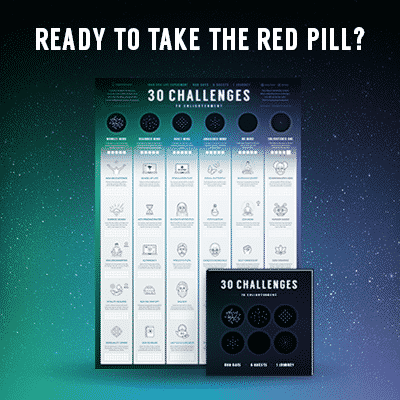
Think these thought experiments were awesome? You haven’t seen anything yet. Our new course will shatter every last perspective you hold…
The course, 30 Challenges to Enlightenment, is a map for those who want to explore life’s most radical frontiers. Through mastering unconventional habits and pushing your comfort zone you will understand the world and your place in it like never before. Are you ready for the journey?

